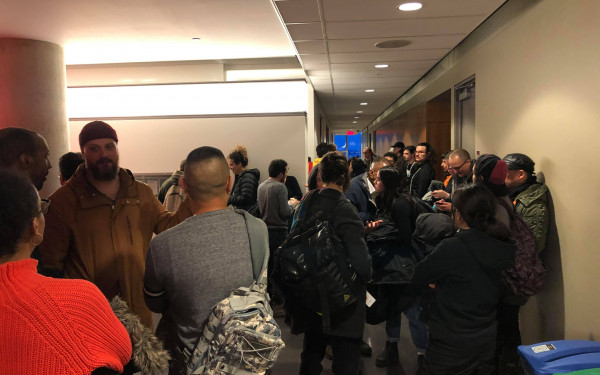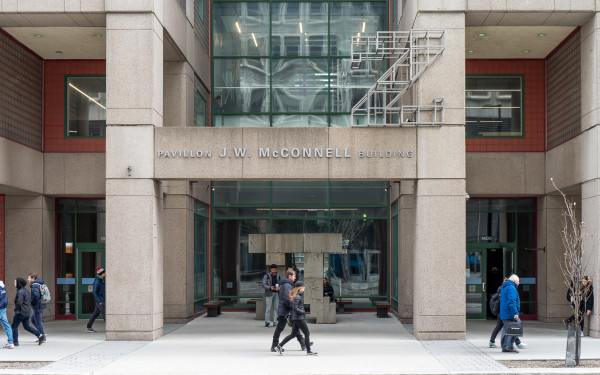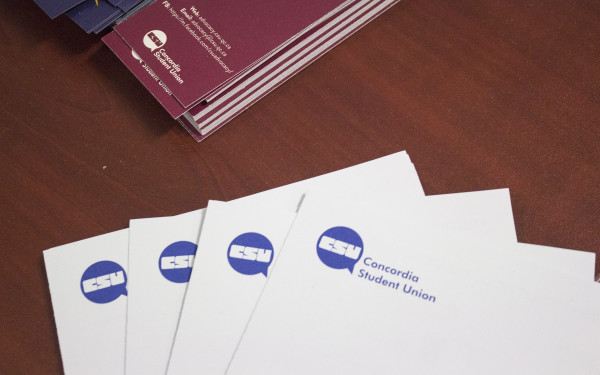Motion for Centralized Online Opt-Out System Passes by One Vote in Secret Ballot
Centralized System Chosen Over Fee-Levy Made System
After fee-levy groups came together to set up an online opt-out system for the first summer semester, the Concordia Student Union council voted against allowing fee-levy groups to manage their own system going forward.
Immediately after the system made by fee-levy groups was rejected on June 10, councillors voted to officially recommend Concordia implement a centralized online opt-out system.
Councillor Harrison Kirshner moved to vote under a secret ballot. The motion passed by one vote.
Coming from the Commerce and Administration Students’ Association, “my initial reaction was to request a closed ballot,” Krishner explained after the meeting. “[In CASA] lots of closed ballots are held particularly on contentious issues.”
Learning from his blunder and adjusting to the differences in governance, Krishner said he won’t be calling for a closed ballot unless absolutely necessary.
The process arranged by fee-levy groups had been outlined on the Concordia Community website. It consisted of a list of all of the university’s fee-levy groups, with their emails attached and the amount they charge per credit.
A handful of CSU councillors voiced their complaints with the website, with Tzvi Hersh Filler claiming it was tough to get in contact with some fee-levy groups as not all of them replied to his emails and some groups listed incorrect email addresses. He did not specify which groups listed incorrect contact information or didn’t get back to him, nor is his statement confirmed.
As per the referendum question posed in 2019, Filler mentioned the online opt-out system should be connected to the Concordia student portal, and not an external website. However, the question’s wording doesn’t explicitly say the implementation would be centralized, only asking: “Do you support Concordia University bringing the opt out process online for student fee levy organizations?”
Newly elected councillor Yasmine Yahiaoui agreed with Filler, while admitting she didn’t know much about the motion at hand.
“Anything with Concordia takes like two years,” said councillor Anaïs Gagnon to those complaints. She pointed out how fee-levies coming together in light of the coronavirus to arrange this so quickly is impressive. “What doesn’t have kinks?” she added.
“Who decided there was an urgency and a fire?” —Angelica Calcagnile
Gagnon mentioned how fee-levies are there to help people in financial need, sometimes the same people that want their fees returned. A system that educates students on the services available to them is what she hopes for.
“You’re only really getting back $50,” said Emily Carson-Apstein, Sustainable Concordia’s External VP, in response to those pushing for a implementation deadline so students have the opportunity to get their money back.
After the motion was brought to a vote and failed, Kalafatidis presented a motion to solidify online opt-out’s implementation by fall 2020.
The motion called for the CSU’s official recommendation to the university that it implement a new online opt-out system for fall 2020. Students would be provided implementation timeline updates through the CSU’s newsletter and social media.
However, the fee-levy consultation report concluded Concordia and the CSU would not advertise the online opt-out timeframe through emails or social media.
Student life coordinator Eduardo Malorni spoke against the motion due to the major lack of communication between fee-levy groups and the CSU. Fee-levies felt they weren’t consulted, he said.
“Who decided there was an urgency and a fire?” said Angelica Calcagnile, CJLO’s art director and president of its governing board. “Why does fall 2020 have to be the be all end all?”
Calcagnile mentioned Kalafatidis’ affinity for saying Concordia voted for the online opt-out, when in reality there was a very small margin of voter engagement when voting for the referendum question. Only 16.6 per cent of students voted in November 2019, with 61.1 per cent of them voting for the online opt-out.
“I’m feeling this is a very angry tirade, that I’m the worst person ever,” Kalafatidis said.
“It’s an inappropriate use of council and a personal project gone awry,” Calcagnile said in response to Kalafatidis’ comment after a brief pause.
“We were hoping to come to an agreement with the fee-levies on this issue and work towards improving the system together,” Malorni said in the meeting’s aftermath. “But as council rejected the proposal of the fee-levy groups and decided to pass their own motion on the matter, we are now going to have to work from there to get the system implemented.”







